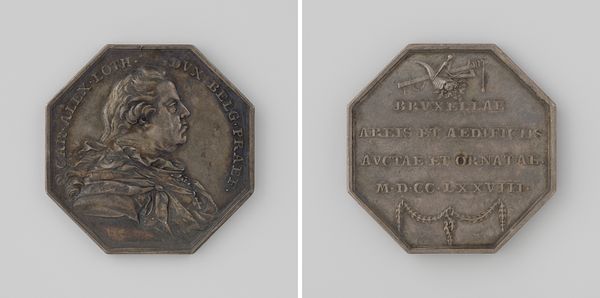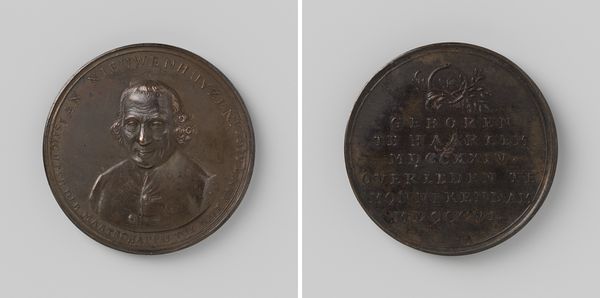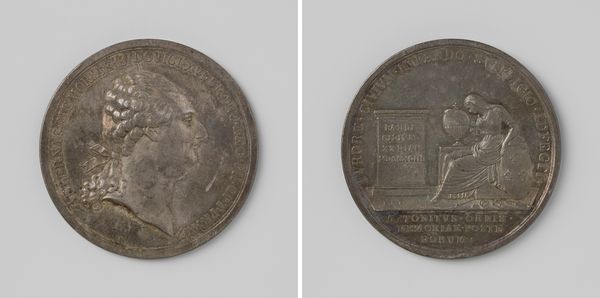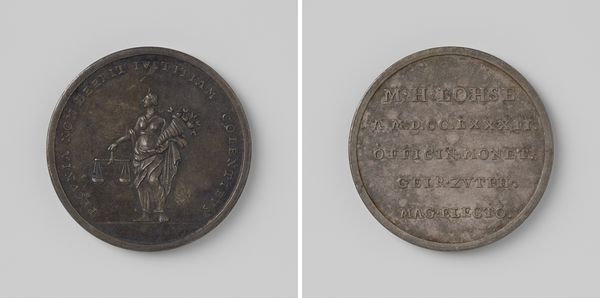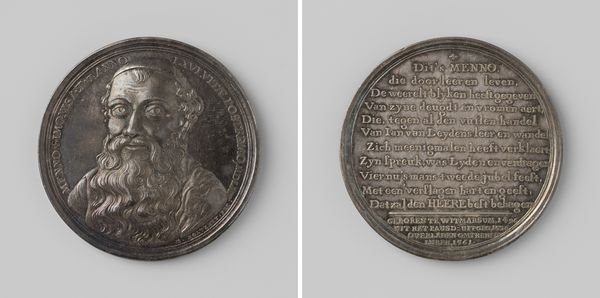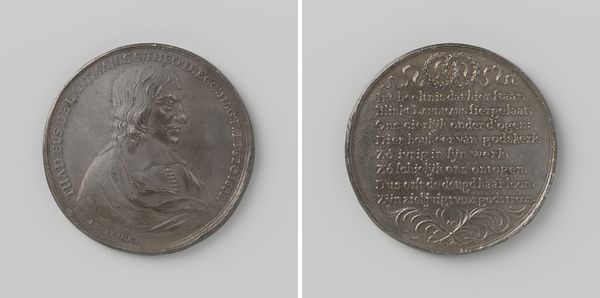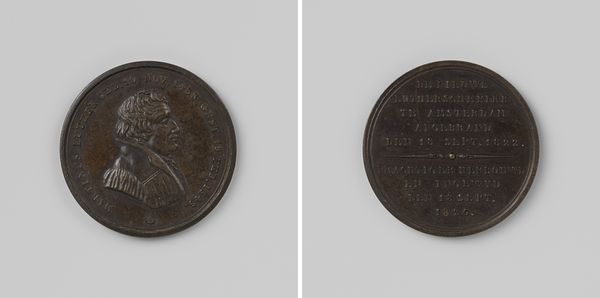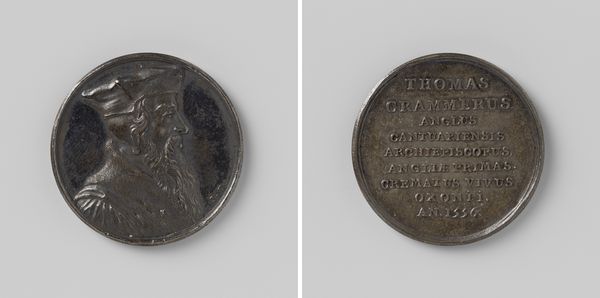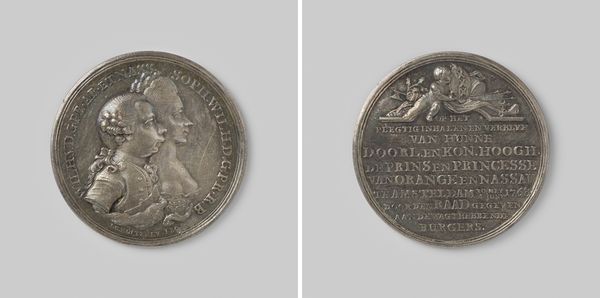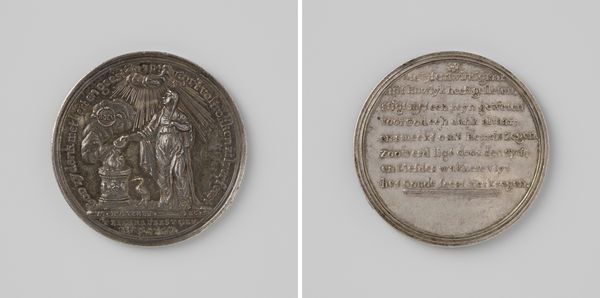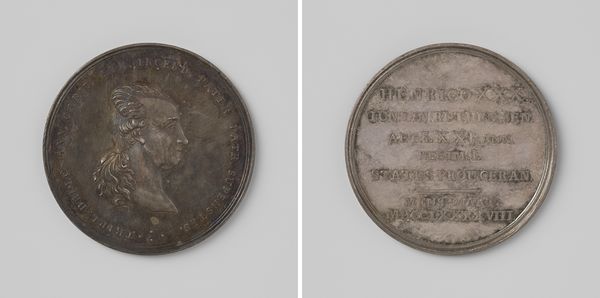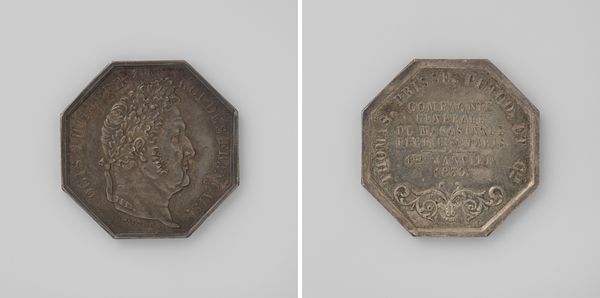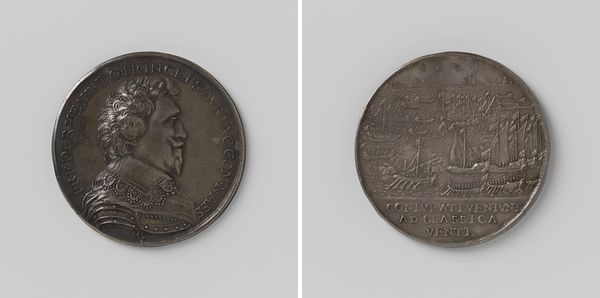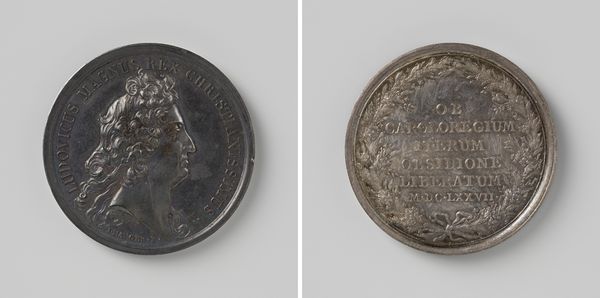
Stichting van het seminarie te Leuven, ter ere van Maria Christina en Albert-Kasimir, landvoogden der zuidelijke Nederlanden, penning vereerd door het gewest Brabant 1786
0:00
0:00
metal, sculpture
#
portrait
#
neoclacissism
#
metal
#
sculpture
#
sculpture
#
history-painting
#
miniature
#
statue
Dimensions: length 3.4 cm, width 3.4 cm, weight 19.80 gr
Copyright: Rijks Museum: Open Domain
This octagonal medal was created by Theodorus Victor van Berckel to honor Maria Christina and Albert-Kasimir, governors of the Southern Netherlands. It's made of silver, a precious material signaling the importance of the occasion. The medal was likely die-struck, a process involving hammering or pressing the metal between two hardened steel dies. This technique allowed for the relatively efficient production of detailed imagery and lettering, seen here in the portraits and Latin inscriptions. The very qualities of the silver, its sheen and malleability, would have been highly valued. Such medals were often distributed as commemorative objects, reinforcing the power and authority of the ruling class. Minting coins and medals has always been a means of communication and control. This medal, therefore, is not just an artwork but a small piece of political theater, reflecting the close relationship between art, craft, and the social order.
Comments
No comments
Be the first to comment and join the conversation on the ultimate creative platform.
